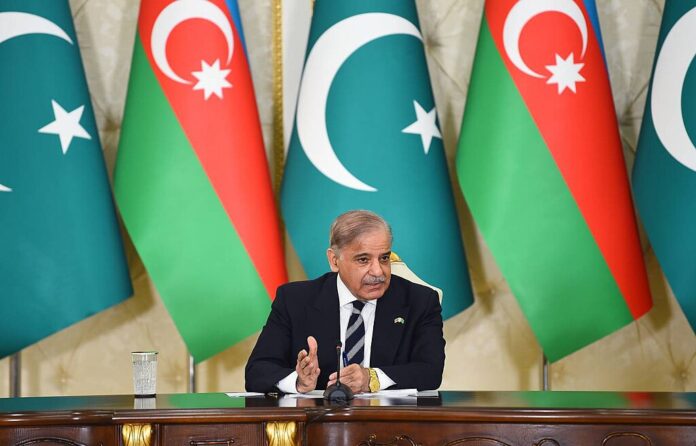A formal invitation sent for October meeting, but scepticism remains about Modi’s attendance due to strained relations
Pakistan has officially invited Indian Prime Minister Narendra Modi to the upcoming Shanghai Cooperation Organization (SCO) summit, scheduled to be held in Islamabad on October 15 and 16, 2024. This marks the first time in eight years that Pakistan has extended such an invitation to Modi, reflecting a notable shift in diplomatic engagement between the two nations.
The invitation comes directly from Pakistani Prime Minister Shehbaz Sharif, who is also reaching out to other regional leaders for the high-profile gathering of SCO heads of government. The SCO, a major Eurasian political, economic, and security alliance, was founded in 2001 by China, Russia, Kazakhstan, Kyrgyzstan, Tajikistan, and Uzbekistan. It has since grown to include India, Pakistan, and Iran as full members, with Afghanistan, Belarus, Mongolia, and other countries as observers and dialogue partners.
Embed from Getty ImagesThis invitation is particularly significant given the frosty relations between Pakistan and India. The last time Modi was invited to a South Asian Association for Regional Cooperation (SAARC) summit was in 2016. That summit was ultimately boycotted by India, leading to the near-collapse of the regional organization. Since then, SAARC has struggled to regain its former relevance, highlighting the challenges of regional diplomacy.
Despite the formal invitation, diplomatic sources express scepticism about Modi’s physical presence in Islamabad, given the ongoing tensions between the two countries. The relationship between India and Pakistan remains strained, with both nations holding divergent views on key issues, making a face-to-face meeting complex.
However, the SCO summit presents a significant opportunity for diplomatic engagement. Regional groupings like the SCO have historically provided platforms for resetting ties and initiating dialogues. If Modi chooses not to attend in person, there is a possibility he might join the summit virtually, as he did during the last SCO summit hosted by India.
The SCO, which aims to address regional security concerns and promote economic cooperation, has become an influential platform for its member states. It engages in joint military exercises, intelligence sharing, and regional development initiatives, including China’s Belt and Road Initiative (BRI). The SCO also advocates for a multipolar world order, often challenging Western dominance in global affairs.
Pakistan’s participation in SCO events hosted by India last year, including a visit by Foreign Minister Bilawal Bhutto to Goa for the SCO Foreign Ministers’ meeting in May 2023, underscores the importance both nations place on regional cooperation. Despite tensions, Pakistan attended these meetings either in person or virtually.
In contrast, India’s decision to host the July 2023 SCO Summit virtually rather than in person was influenced by its strained relations with China and Pakistan. This move reflected the complexities of hosting such high-stakes meetings amidst ongoing geopolitical tensions.
As the SCO summit approaches, the focus will be on whether Modi’s attendance, whether virtual or physical, will lead to any tangible diplomatic breakthroughs or if the summit will primarily serve as a forum for regional leaders to reaffirm their positions on various global and regional issues.
Analysis:
Political: The invitation to Modi represents a strategic diplomatic manoeuvre by Pakistan to reengage with India through multilateral platforms. Politically, this move could be seen as an attempt by Pakistan to leverage the SCO summit to address longstanding bilateral issues and potentially reset diplomatic relations. However, given the current state of tensions, Modi’s attendance—if it happens—might not translate into immediate improvements in bilateral ties but could set the stage for future negotiations.
Social: From a social perspective, the summit could provide a rare opportunity for public diplomacy and engagement between the two nations. High-profile meetings like these often capture public attention and can influence perceptions of the political climate. Positive interactions at the summit might foster a sense of hope or normalization among citizens, even if substantive changes are not immediately apparent.
Racial: While the direct racial implications of the summit are limited, the broader context of regional tensions can impact ethnic and national identities within both countries. The SCO’s focus on security and cooperation might address some of the underlying issues that contribute to ethnic and sectarian divisions, though progress in this area is often slow and complex.
Gender: The gendered impact of diplomatic events such as the SCO summit is typically indirect but significant. Policies and agreements resulting from such meetings can affect women disproportionately, especially in areas related to economic development and security. Ensuring that gender considerations are integrated into regional cooperation efforts is essential for equitable outcomes.
Economic: Economically, the SCO summit is crucial for discussing regional development, trade, and infrastructure projects. The presence of key players like India and Pakistan at the summit could influence economic policies and investments in the region. The Belt and Road Initiative (BRI) and other SCO projects have substantial economic implications, and the summit will be a platform for advancing these initiatives, which could have widespread economic benefits or challenges for member states.
